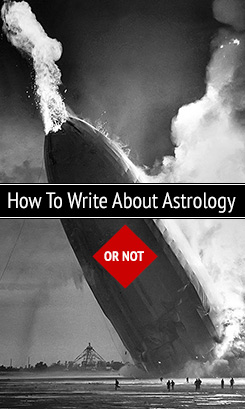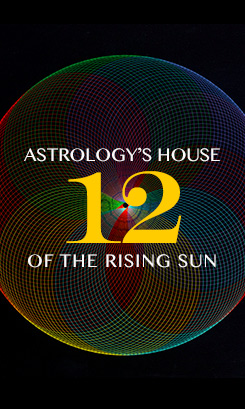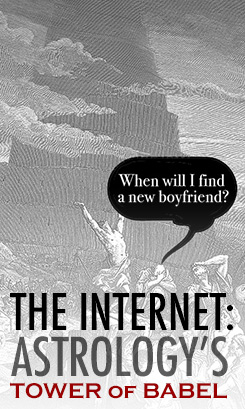Can You Hear Me Now?
Watching the NSA/PRISM surveillance scandal unravel is disconcerting on a score of different of fronts. The most salient, as the Pentagon Papers’ papa Daniel Ellsberg puts it, is the “possibility to roll back a key part of what has amounted to an ‘executive coup’ against the US constitution.”
“Possibilities” like this also crop unsavory mushrooms, like Congress’s own Lollypop Kid, Rand Paul, co-opting the fracas to rally support for his presidential bid in 2016. One disaster begets another.
With an eruption of this magnitude in the global theater (OMG, even China’s databases have been mined) and given the omnipresence of online bobble heads — logorrheic pundits, Armageddonites and wannabe journalists, it’s wise — just like the NSA — to sift your information discreetly. What (and how much data) should you pay attention to?
But first, consider how we gorged on data shortly after 9/11 — and what little good that yielded. Meaning, no matter the quantity, it was impossible to escape our primitive desire for Old Testament style vengeance. Lots of information doesn’t necessarily soothe the primitive instincts.
By not disciplining our reptilian brain, we were, simply put, distracted into a war with Iraq. Today we blame President Bush, but societies always have the king or simpleton that best mirrors their collective mindset. Or as Joseph de Maistre put it: “Every country has the government it deserves.”
There was very little ‘presence of mind’ after 9/11 but lots of aping. We all took on the habit of borrowing opinions from experts to weave together a narrative that made sense, made us feel safe — or vindicated. And so began the great divide between tree houses. The Fox and the Peacock. The red and the blue. The Hatfield and the McCoy’s. The underpinnings on the dumbing of America.
The New Yorker‘s George Packer described this post-9/11 dementia as: “Too much information and not enough understanding of power: globalization and violence merged to create a particular kind of psychosis, with well-founded fears and judgments warped into paranoia and hallucination by nonstop media saturation.”
The weeks after 9/11 were charged with an otherworldly sensitivity. It’s true, people were kinder to one another in the subway, kinder to themselves. But shortly thereafter an eerie, robotic re-engagement kicked in. To be disconnected from the agitated hive-mind felt unsafe (“Honey, what’s the color of today’s Terror Alert?”)
To heal as a nation we were instructed to “shop more”. I remember talking to friends in Germany — a revelation. Europeans considered us with disbelief — and then confirmation (Americans were not only obnoxious, but ignorant too!) How could we be so naive? So self-absorbed with the current version of our Manifest Destiny (the American Dream) — that we’d no connection to the historical and global implications of our pursuits, ideologies and childlike trust in fools?
I mention 9/11 because, well, origin, how the tale began, is good to throw into to the NSA/PRISM whirlpool. Post 9/11, cryptologic storehouses like the NSA (humorously dubbed by insiders as: No Such Agency) were shored and granted carte blanche under the Bush/Cheney congress and its comfy-sounding Homeland Security rubric (a term George Orwell would have envied). To continue shopping at Wal*Mart was critical, and to have that sort of post-shock nonchalance meant surrendering our privacy. But more important was the notion to not look back, not to scrutinize how the big suck would be implemented.
If you put all of the above together — civilian surveillance, hypnotic info glut, media manipulation/distraction — and push it through an astrological funnel, you’ll land in the center of the United States’ natal Mercury Pluto opposition. The lone opposition in the USA’s birth chart, the very spine that all of the various planetary relationships that comprise a chart teeter.
In her book Soul Sick Nation, astrologer Jessica Murray, describes the disparity of this opposition, noting that “Pluto has overpowered Mercury, crippling its capacity for curiosity. The anti-intellectualism for which the US has long been notorious has deepened into a dumbing-down trajectory that is studiously aided and abetted by the business-government alliance that rules Washington.” The later signified by Pluto in the second house of the Sibly chart.
Positioned in the eighth and second houses, the Mercury Pluto opposition is out of aspect to the chart’s ascendant, which is why in traditional astrology the 12th, 2nd, 6th and 8th houses are considered problematic. Those portions of the wheel make no geometric aspect to the heart of the chart, the ascendant. They fall beyond the locus of self-awareness. It’s like sharing a house where you’ve little contact with or knowledge of the occupants situated in the rooms next to yours. Planets positioned in such a way, if not consciously engaged, tend to regress or distort — or in the United States’ case, become shadowed; paranoid and obsessed with securing power (second house) by controlling, monitoring, manipulating affairs behind the scenes (eighth house).
I used the term ‘presence of mind’ above. This quality of focused attention can be the hallmark of a Pluto Mercury alliance. But when procedures and protocols that are in place to protect and enlighten US citizens go ‘dark’, polarization gains traction: Reliable news sources and info-structures morph into propaganda, spying and conspiracy theory spinners. Murray writes that Pluto “can impair the Mercurial ability to pay attention; to take in reality.” This is when distraction becomes a commodity. But to whose advantage?
As politicians and the public ‘weigh in’ on the NSA/Prism expose, what’s interesting to note is that the majority doesn’t feel bothered by the invasion of privacy. I’d a similar reaction to the news, imagining how dull it must be for someone to filter through my car rental receipts or Facebook posts.
But as legal scholar Daniel J. Solove points out, the real alarm related to the NSA is the issue of “information processing — the storage, use, or analysis of data–rather than information collection. They affect the power relationships between people and the institutions of the modern state. They not only frustrate the individual by creating a sense of helplessness and powerlessness, but they also affect social structure by altering the kind of relationships people have with the institutions that make important decisions about their lives.”
He continues:
“It is … a power imbalance between individuals and the government. To what extent should the Executive Branch and an agency such as the NSA, which is relatively insulated from the political process and public accountability, have a significant power over citizens? This issue is not about whether the information gathered is something people want to hide, but rather about the power and the structure of government.”
What Solove highlights could be lifted directly from another close reading of the Mercury Pluto opposition in the United State’s birth chart. Pluto is power. Mercury is information. When the two collide, in houses like the 2nd and 8th, it is not just the Orwellian factor that’s put into high relief, but, as Solove explains, it’s the Kafkaesque. And that’s where Silicon Valley comes in.
The government, or its contracted agencies, might be the ones filing secret requests for data, but it’s the brilliant machine makers and hive minders from Silicon Valley that generate the gizmos and collect the data that’s mined. This is a subtler, more slippery issue and relates to a larger disparity of power, one that each of us negotiates each morning, whenever we log on to Facebook, Google or Skype. Namely: Our addiction to connectivity and the distraction it provides.
In the decade following 9/11, computers known as ‘siren servers’ were created to syphon off what little was left of our ‘free’ attention. A siren server, as tech visionary Jaron Laneir describes it, is a giant computer network that slurps up data and personal information without our permission and without the computer owner’s having to pay for it.
If you consider the seemingly simple (though actually labyrinthine) Facebook contract you electronically ‘sign’ to partake of Facebook’s walled garden, and amplify that into a billion (Facebook’s highly touted ‘users’ number), you’ve a good sense for what a siren server-based corporation is capable of accruing and managing. Wow! All of that personal data, willingly, freely offered up to and then monetized by Facebook. And all I got was this lousy t-shirt.
Take a moment to consider the psychology of the exchange. The details take on an ominous hue; another sinister shade of the Mercury/Pluto problem. Consider the cycle: Monster computer networks load their drives with as much personal data as non-humanly possible to capitalize on our culture’s weakness for distraction. While selling that data to the highest bidder, the same data is re-circulated into the ‘user experience’ in such a way that old data must beget new, fresher data so said users can stake a small voice amidst the glut-drone which is constantly, like a river, carrying everyone’s contribution further downstream. “Can you hear me now?”
As online ‘interconnectivity’ defines the ‘new norm’, our human instinct for genuine contact is subverted. What to do? In the dazzling sheen of tech novelty (always new versions, new upgrades, new ‘devices’), the solution for loneliness is more personal blogs, more Facebook posts, more online dating, more Instagram pics of a soon-to-be-consumed sandwich propped next to a glowing laptop.
And so the volume is turned up a notch: “Can you hear me now?” Our social instinct for physical contact has mutated into a narcissistic hunger to be noticed and acknowledged within a virtual (fake) matrix that can never answer back; at least not in a way that soothes our desire for touch, eye contact and emotional resonance.
In Mark Zuckerberg’s New Yorker profile from several years back, it is revealed that his own Facebook page lists, among his interests: Minimalism, revolutions, and “eliminating desire.â€
But not ‘poking.’
The equation became strange, in that freaky way that events can leap exponentially within tech time, and soon the need to ‘share’ devolved into the addiction for, at the very least, acknowledgment: The stronger the desire for contact, the quicker network denizens surrendered their privacy. “Can you really see me now?” Yes, the NSA has answered, we do darlin’ — and you look FABULOUS! (Although please don’t call it spying — remember, it’s just heaps of ‘ones’ and ‘zeros’, metadata stored in some salt mine in Utah for ‘future reference.’)
So, why now the sudden shock that our privacy has been violated? As noted earlier, more than half of the US population doesn’t even give a fuck. While the other half, forgetting that it was the Bush/Cheney watch that implemented the big ‘poke’ into everyone’s bizness in the first place. But it’s best to bring the dialogue back to what’s really going on in your kitchen, den or office.
In a 2010 essay for The New York Review of Books the author Zadie Smith wrote:
“When a human being becomes a set of data on a website like Facebook, he or she is reduced. Everything shrinks. Individual character. Friendships. Language. Sensibility. In a way it’s a transcendent experience: we lose our bodies, our messy feelings, our desires, our fears.”
Yes. But the animal in us, the human in us, cries. This is not a good thing. The ease and convenience of the ‘information age’ comes with a price. I call it the ‘Irony of Connection.’ It’s a moment like this, when the public debate about surveillance is screeching, that we can step back 0ut of the fray and have a private “snap-to” moment; a careful re-evaluation where we might unplug and venture outside to watch the sun set, or trace with a careful eye the beauty of our child’s face — her inner light that moves forward, through the warmth of atmosphere — not the glow of a computer monitor.
*
Here is a reading/watching list to mull in the weeks ahead, another set of facets illuminated by the ongoing Uranus Pluto square — which moves into another exact angle in September, when the two planets hit their 90 degree hot spot and release another Kraken:
1. The Spy Who Loved Us
Picking up where last month’s Uranus Pluto square article left off, astrologer Jessica Murray’s latest entry tracks the Snowden/NSA collision with pinpoint accuracy. Helping you connect the dots, as viewed from the celestial perspective. Murray’s reading has the flavor of a science fiction plot that’s poised precariously at a tipping point:
“The NSA is made up of human employees who have gotten in over their heads in their use of machines, just as humanity at this world moment is deeply estranged from our core commonality. Estranged enough to construct agencies that use digital technology for power and control, and to conceive of destroying anyone who gets in their way.”
2. Jaron Lanier
For every messy scandal, there’s a bit of compensatory wisdom from insiders that matter. I suggest you explore the new book by Jaron Lanier: Who Owns the Future. But you can begin by reading an interview with the man who recently announced that the Internet has destroyed the middle class, from his interview over on Salon, where he notes:
“The way society actually works is there’s some mechanism of basic stability so that the majority of people can outspend the elite so we can have a democracy. That’s the thing we’re destroying, and that’s really the thing I’m hoping to preserve. So we can look at musicians and artists and journalists as the canaries in the coal mine, and is this the precedent that we want to follow for our doctors and lawyers and nurses and everybody else? Because technology will get to everybody eventually.”
3. The New Digital Age.Â
And in the “I’ll Take Self-Congratulating Douches for 500, Alex” category I recommend the following bitch slaps for Google’s Eric Schmidt and Jared Cohen and their new book/manifesto — from two different voices:
The New Republic‘s review, Future Shlock, by Evgeny Morozov and the world’s first cypherpunk, Julian Assange,in his op-ed for the New York Times, titled The Banality of Don’t Be Evil. (And if you don’t want to read the later, just staring at the opening illustration should be enough to drop your body temperature a few notches.)
4. Louis C.K. on Facebook and Assholes.
Because no scandal is complete without a comedic break, well, here you go. (And this is super NSFW, BTW.)



















